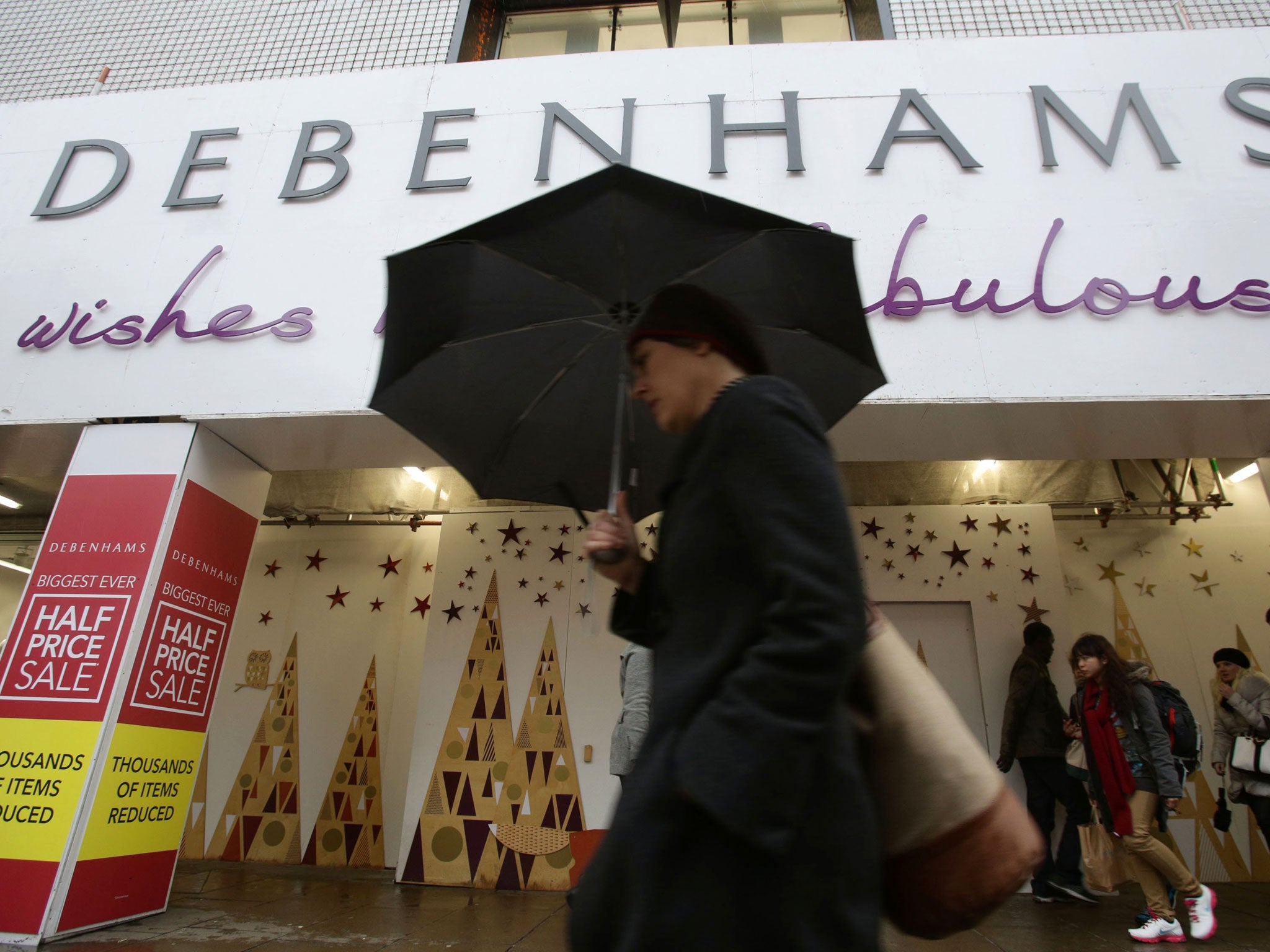More borrowing, less spending: January figures set back recovery
Fall in retail sales and smaller surplus in public finances hits economic targets

The rapid recent momentum behind the UK’s recovery slackened yesterday after the worst January for the nation’s public finances since 2010 as high street sales were swamped by rainfall.
Borrowing figures for January – a month in which receipts are typically buoyed by self-assessment income tax returns as well as corporation tax takings – recorded a surplus of £4.7bn, lower than the £6bn seen a year earlier, according to the Office for National Statistics.
Retail sales, meanwhile, sank 1.5 per cent over the month – a bigger-than-expected retrenchment from pre-Christmas consumer spending, which economists attributed to the wettest January since records began almost 250 years ago. This year the UK had 51 per cent more rainfall than the January average, and twice as much across the more affluent South-east.
The figures take the gloss off a run of positive economic news including inflation falling below the Bank of England’s 2 per cent target rate for the first time in four years and a sharp upgrade to the Bank’s growth forecasts for this year, to 3.4 per cent.
The smaller surplus in the public finances left borrowing for the 10 months of the financial year so far at £90.7bn, albeit still £3.9bn lower than at the same time last year and on course to meet the Office for Budget Responsibility’s £111bn borrowing target for the financial year.
The disappointing January numbers were driven by lower income tax self-assessment returns as earners deferred tax payments into the current financial year to take advantage of last April’s cut in the top rate to 45 per cent. This, of course, should boost the tax take next January.
Corporation tax takings also fell on lower revenues from North Sea oil and gas, which the OBR put down to production declines and high levels of tax-deductible capital spending. Higher VAT takings and a boost to stamp duty revenues from a resurgent housing market were, however, a positive for the Treasury. Samuel Tombs, an economist at Capital Economics, said: “We suspect that January’s surplus could be revised bigger in time. The public finance figures are not bad enough on their own to rule out a small pre-election giveaway by the Chancellor in the upcoming Budget.”
The decline in retail sales – although worse than expected – was shrugged off by most analysts, who expect the consumer squeeze to finally ease in 2014 as wages move ahead of the cost of living for the first time in five years. Furniture, do-it-yourself and electrical stores fared better as online shoppers boosted overall sales. But consumers are still digging into their savings to fund spending, with retail sales growth over the year to January – up 4.8 per cent – rising three times as fast as incomes.
The Berenberg economist Christian Schultz said: “As wage growth begins to pick up and inflation falls, the real income squeeze on households should ease. In the meantime, however, the rapid pace of expansion may slow somewhat as households are less likely to reduce their savings rate further as quickly as last year.”
Subscribe to Independent Premium to bookmark this article
Want to bookmark your favourite articles and stories to read or reference later? Start your Independent Premium subscription today.

Join our commenting forum
Join thought-provoking conversations, follow other Independent readers and see their replies